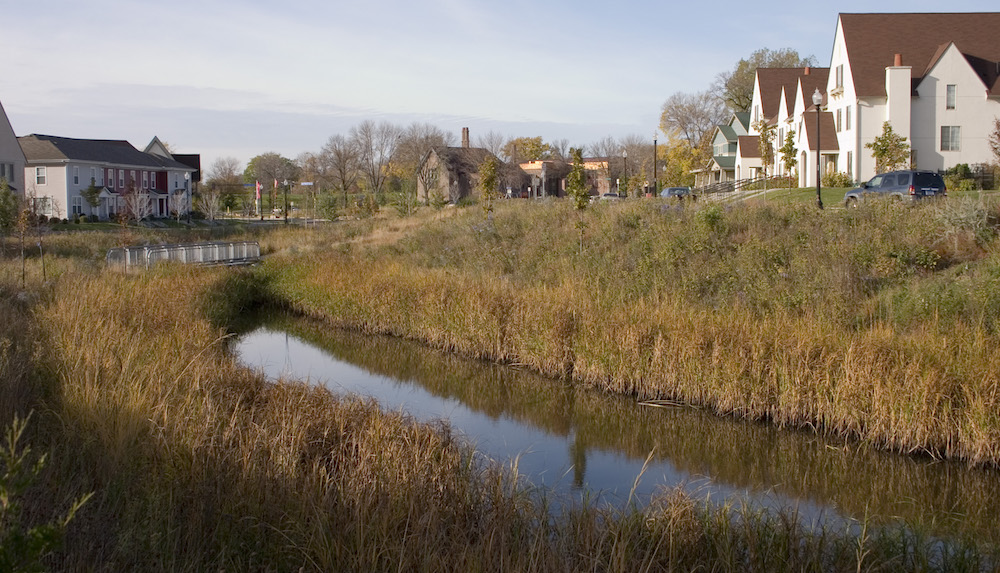The Environmental Protection Agency’s has proposed new National Pollution Discharge Elimination System (NPDES) general permit requirements regulating stormwater discharges from construction activities.
The proposal applies to construction sites of one or more acres, or less than one acre, but part of a larger development. The proposal would:
- Prohibit hazardous substances, such as paint or caulk containing polychlorinated biphenyls (PCBs) from authorized non-stormwater discharges of external building washdown waters.
- Require permittees to include the EPA’s contact information in public notices that are already required to be posted in a prominent location near construction sites.
- Require permittees to cover or use another method of temporary stabilization for inactive soil stockpiles and land clearing debris piles where the piles will be unused for 14 or more days.
- Require permittees to keep waste container lids closed (or provide some other secure cover where containers do not have lids).
- For demolition of structures with at least 10,000 sf of floor space built or renovated before 1980, require permittees to implement controls to minimize the exposure of PCB-containing building materials to precipitation and stormwater.
- Require permittees to state on their Notice of Intent (NOI) form the type of construction activities that will be involved.
These potential permit changes could significantly increase the time, effort, and resources required to comply with stormwater management obligations, according to an article by the law firm Dykema, Gossett PLLC.
Related Stories
| Apr 10, 2013
ASHRAE publishes second edition to HVAC manual for healthcare facilities
The American Society of Heating, Refrigerating and Air-Conditioning Engineers (ASHRAE) has published a second edition of its “HVAC Design Manual for Hospitals and Clinics.”
| Apr 10, 2013
Concrete Reinforcing Steel Institute accredited by ANSI as standards developer
The Concrete Reinforcing Steel Institute (CRSI) was recently accredited by the American National Standards Institute (ANSI) as an ANSI Accredited Standards Developer (ASD).
| Apr 10, 2013
DOD should continue LEED-Silver or equivalent rating standard, says NRC
The Department of Defense should continue to require that its new buildings or major renovations to facilities be designed to achieve a LEED-Silver or equivalent rating, says a new report from the National Research Council.
| Apr 10, 2013
EPA proposes emissions rules affecting light construction vehicles
The Environmental Protection Agency has proposed air-pollution standards that it says will reduce the amount of sulfur in U.S. gasoline by two-thirds and impose fleet-wide pollution limits on new vehicles.
| Apr 10, 2013
New skyscraper designs raising the bar on green standards
Though most new skyscraper designs have a traditional look, they are including a wider array of sustainable elements to use energy and water more efficiently and improve human health.
| Apr 5, 2013
Lack of national standards on design of bioterror labs creates higher risk for accidents, panel says
U.S. labs that conduct research on bioterror germs such as anthrax are at risk for accidents because they do not have uniform design and operation standards, according to a Congressional investigative group.
| Apr 5, 2013
Builders Hardware Manuf. Assn. revises three standards for hinges, locks, and latches
The Builders Hardware Manufacturers Association (BHMA) released three new revisions to the ANSI/BHMA standardsfor hinges, interconnected locks, and sliding and folding hardware.
| Apr 5, 2013
New items to ASHRAE/IES energy standard open for public comment
The 2013 version of the ANSI/ASHRAE/IES Standard 90.1-2010, Energy Standard for Buildings Except Low-Rise Residential Buildings, is scheduled for publication later this year, and 26 proposed addenda are open for public comment.
| Apr 5, 2013
No evidence that mandatory building energy labeling improves efficiency, study says
The Building Owners and Managers Association (BOMA) International and the Greater Boston Real Estate Board (GBREB) released a report, “An Economic Perspective on Building Labeling Policies,” that questions the efficacy of mandatory building energy labeling.
| Mar 27, 2013
Practical application of Legionella prevention standards the focus of ASHRAE project
An American Society of Heating, Refrigerating and Air-Conditioning Engineers committee drafting tough new standards to prevent the waterborne bacteria Legionella is focused on how to apply the standards in the real world.












